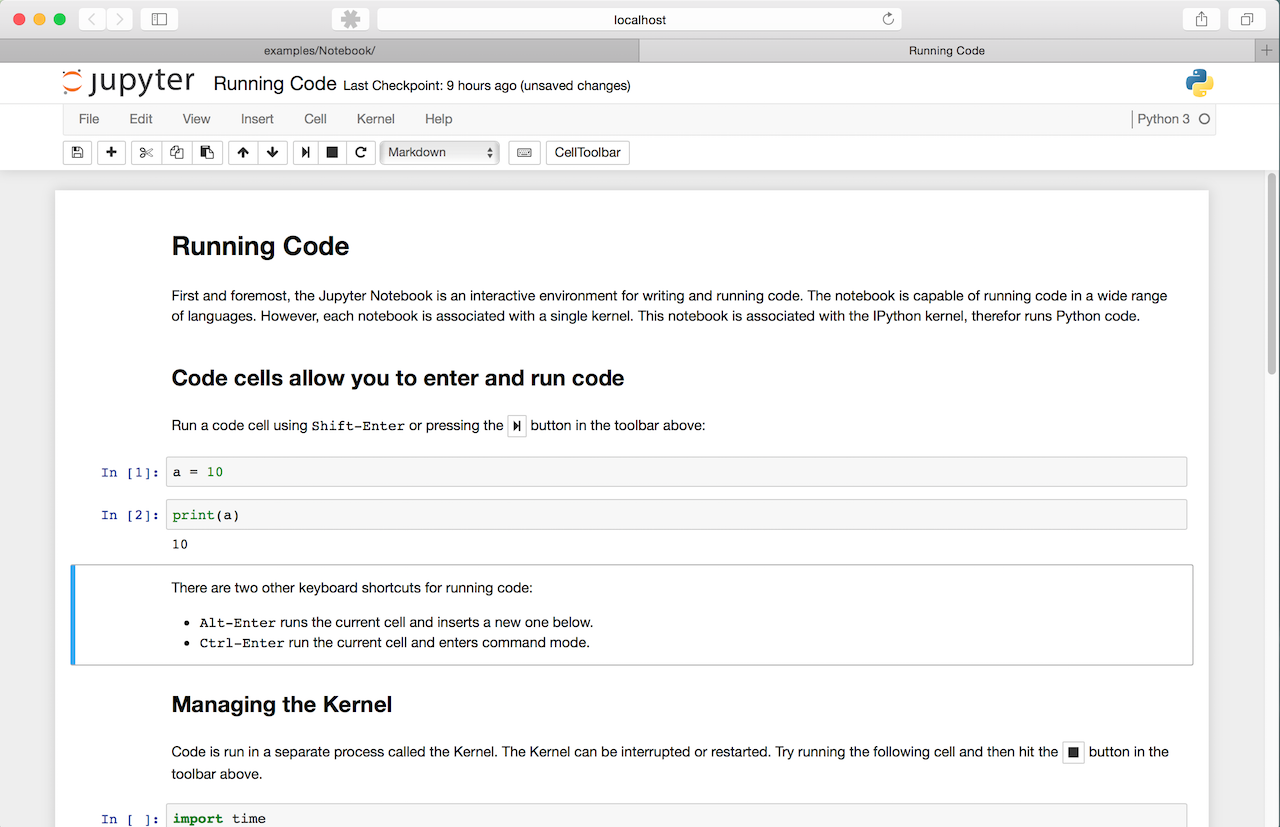| .github/ISSUE_TEMPLATE | ||
| docs | ||
| docs-translations | ||
| git-hooks | ||
| notebook | ||
| tools | ||
| .babelrc | ||
| .bowerrc | ||
| .eslintignore | ||
| .eslintrc.json | ||
| .gitignore | ||
| .gitmodules | ||
| .mailmap | ||
| .travis.yml | ||
| appveyor.yml | ||
| bower.json | ||
| codecov.yml | ||
| CONTRIBUTING.rst | ||
| LICENSE | ||
| MANIFEST.in | ||
| package.json | ||
| README.md | ||
| readthedocs.yml | ||
| RELEASE.md | ||
| setup.cfg | ||
| setup.py | ||
| setupbase.py | ||
Jupyter Notebook
The Jupyter notebook is a web-based notebook environment for interactive computing.
Notice
Please note that this repository is currently maintained by a skeleton crew of maintainers from the Jupyter community. We encourage users to transition to JupyterLab, where more immediate support can occur. Our approach moving forward will be:
- To maintain the security of the Jupyter Notebook. That means security-related issues and pull requests are our highest priority.
- To address JupyterLab feature parity issues. As part of this effort, we are also working on a better notebook-only experience in JupyterLab for users who prefer the UI of the classic Jupyter Notebook.
- To be responsive to the hard work of community members who have opened pull requests. We are triaging these PRs. We cannot support or maintain new features at this time, but we welcome security and other sustainability fixes.
If you have an open pull request with a new feature or if you were planning to open one, please consider shipping it as a notebook extension instead.
Alternatives to contributing to notebook
Additionally, please consider whether your contribution would be appropriate for either the underlying server for Jupyter front-ends, jupyter_server or in the JupyterLab front-end.
Jupyter notebook, the language-agnostic evolution of IPython notebook
Jupyter notebook is a language-agnostic HTML notebook application for Project Jupyter. In 2015, Jupyter notebook was released as a part of The Big Split™ of the IPython codebase. IPython 3 was the last major monolithic release containing both language-agnostic code, such as the IPython notebook, and language specific code, such as the IPython kernel for Python. As computing spans across many languages, Project Jupyter will continue to develop the language-agnostic Jupyter notebook in this repo and with the help of the community develop language specific kernels which are found in their own discrete repos. [The Big Split™ announcement] [Jupyter Ascending blog post]
Installation
You can find the installation documentation for the Jupyter platform, on ReadTheDocs. The documentation for advanced usage of Jupyter notebook can be found here.
For a local installation, make sure you have pip installed and run:
$ pip install notebook
Usage - Running Jupyter notebook
Running in a local installation
Launch with:
$ jupyter notebook
Running in a remote installation
You need some configuration before starting Jupyter notebook remotely. See Running a notebook server.
Development Installation
See CONTRIBUTING.rst for how to set up a local development installation.
Contributing
If you are interested in contributing to the project, see CONTRIBUTING.rst.

